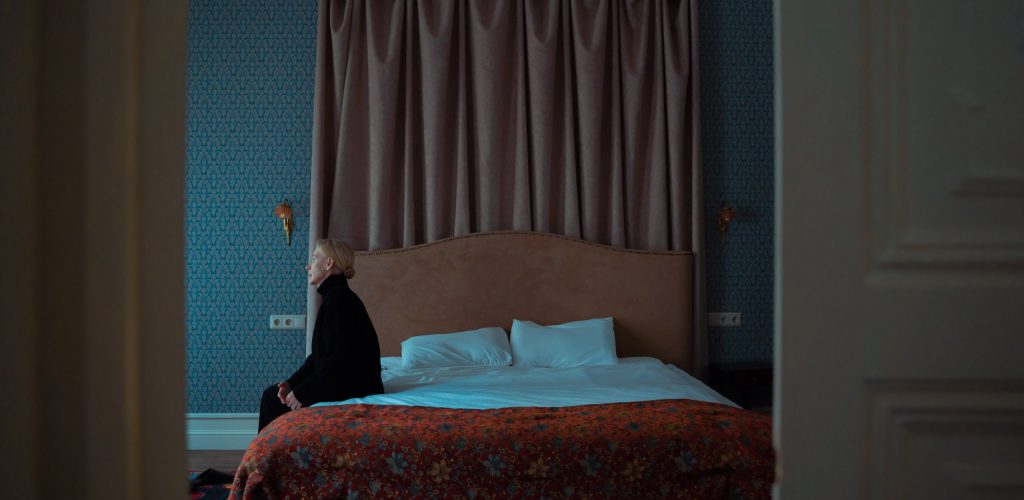
Health Anxiety: Navigating the Obsessive Grip of Wellness Worry
Health anxiety can be a distressing and debilitating experience, winding its way, everyday, into thoughts and feelings. For some it can even become obsessive…

Sleep, put simply, is the greatest performance drug you can access.
Natural. Non-invasive. And available.
You carry it around with you everywhere, and it’s completely legal.
And yes, it is ‘available’. But whilst there’s quite a bit more to getting a good night’s sleep than just counting sheep, incredibly, we were all born with the ability to sleep well.
So, let’s take a deep dive into what a lack of sleep means, how other conditions such as sleep apnea can affect mental health, and how some gentle, simple efforts can begin to bring that cosy, dreamy worldless world back into our life.
In our modern, fast-paced world, sleep disturbances have become increasingly widespread, leaving countless individuals grappling with the relentless challenges of insomnia and sleep apnea.
Sleep is a fundamental pillar of our physical and mental well-being, impacting everything from our mood to who logically we think.
However, for those who find it difficult to sleep, the concept of sleep meditation offers an alternative approach that can yield surprising benefits.
In this comprehensive exploration, we delve into the profound impact of sleep meditation, its techniques, the potential advantages it offers, and the results of notable studies conducted by esteemed researchers in this field.
Insomnia and sleep apnea often find their roots in emotional turmoil and stress.
The mind races with anxious thoughts, and relaxation becomes an elusive dream. Individuals experiencing these conditions endure sleepless nights, exacerbating their emotional distress.
Now the core value to sleep turmoil is psychological distress, and (as yet) the unresolved circumstances of life.
But that’s for the therapy room.
Right here in this article are a handful of tips and tricks someone can engage in to make life just a little easier once sleep becomes a little snoozier.
It’s crucial to recognise that the relationship between emotions, feelings, and sleep disorders is intricate and bidirectional.
Stress and anxiety can both ’cause’, AND ‘be exacerbated by’ sleep problems, thus creating a seemingly endless and vicious cycle.
But the art of Wakeful Sleeping, or Sleep Meditation, as we’ll explore, can be a powerful tool to break this cycle.
Before we delve into the transformative potential of wakeful sleeping, it’s essential to understand the struggles and symptoms that people with insomnia and sleep apnea face daily.
These challenges not only affect night-time rest but can also spill over into someone’s daily life, impacting productivity, mood, and overall quality of life.
These symptoms can take a significant toll on an individual’s well-being, making it imperative to explore effective interventions, including sleep meditation.
Before delving into the specifics of sleep meditation, it’s crucial to recognise the role of self-care in managing sleep disorders.
I’m a big fan of self help ideas.
Because self help is FREE (and who doesn’t love a bit of free!)
And even the smallest, micro-steps can bring relief when you can maintain some diligent consistency and a dab of persistent effort.
Self care encompasses a range of practices and habits that promote overall well-being and can significantly improve sleep quality.
Here are some self-help options to consider:
Prioritise Sleep Hygiene:
Engage in Physical Activity:
Mindful Eating:
Stress Reduction Techniques:
Limit Naps:
By integrating these self-care practices into your daily life, you can create a foundation for better sleep.
However, if you’re that person seeking a deeper level of relaxation and transformation, sleep meditation holds tremendous promise.
Sleep meditation, a practice rooted in ancient traditions, offers a path to profound relaxation and inner peace.
Let’s explore how to practice sleep meditation and its numerous benefits.
Sleep meditation involves various techniques that promote relaxation and prepare the mind and body for a peaceful night’s sleep.
Here are some key approaches:
Breathwork:
Body Scanning:
Visualisations:
Mindfulness:
These techniques, when practiced regularly, can lead to a state of deep relaxation, paving the way for improved sleep quality.
The advantages of incorporating sleep meditation into your nightly routine are numerous and extend far beyond improved sleep.
Here are some of the benefits:
Reduced Anxiety and Stress:
Enhanced Focus and Clarity:
Restorative Energy:
So self help ideas are gold, AND they’re free.
But for some, doing these self care ideas alone and importantly, maintaining these practices, are just a half step too far.
The next step then may be to consider a therapy practice that incorporates anxiety reduction AND sleep into its approach.
Up steps Solution Focused Hypnotherapy into the sleep arena.
Sleep meditation often incorporates very similar principles to hypnotherapy for insomnia; a therapeutic technique that leverages the power of relaxation to induce a deeply rested state.
In the context of sleep meditation, insomnia hypnotherapy can be a potent tool for increasing the mind and body’s ability to relax and turn down the volume on the clamor and clatter of the outside world, thus enhancing your ability to improve sleep quality.
Hypnotherapy for Insomnia is a natural and calming approach to achieving these changes in brain and behaviour.
It operates on the premise that the mind has the power to influence the body and its responses, and by harnessing the potential of hypnotherapy, individuals can naturally reduce the effects of the fight or flight response, leading to a state of greater relaxation conducive to nights filled with deep and restful sleep.
One of the remarkable aspects of hypnotherapy and it’s integration of sleep meditation (hypnosis), is that it offers a natural and calming path to lower stress levels, and therefore better sleep patterns.
Unlike medication or other interventions, hypnosis and sleep meditation relies on the body’s innate capacity to relax and rejuvenate itself.
It does not involve any external substances or chemicals, making it a safe and holistic approach to sleep improvement.
The calming nature of sleep meditation is particularly valuable in our highly stressful world.
It counters the overstimulation and hyperactivity that many individuals experience during the day, providing a peaceful mind space where you can find reprieve.
By doing so, it reduces the overall arousal of the nervous system, allowing individuals to slip into a state of restful slumber more effortlessly.
While insomnia and sleep apnea are distinct sleep disorders, they share a common thread in their relationship with stress and anxiety.
Sleep apnea, while not considered a result of stress or anxiety, is characterised by pauses in breathing during sleep, and often leads to fragmented sleep and frequent awakenings.
These interruptions can induce stress responses in the body, further exacerbating anxiety levels, and therefore negatively affects natural sleep.
Research has shown that individuals with sleep apnea often experience higher levels of stress and anxiety, which can create a feedback loop, worsening sleep, and potentially worsening the condition.
Therefore, addressing stress and anxiety through practices like solution focused hypnotherapy is crucial for individuals with sleep apnea as well.
To fully understand the potential of sleep meditation in managing sleep apnea, it’s essential to recognise how this practice can be adapted to address the specific challenges of this disorder.
Here are some considerations for individuals with sleep apnea:
Focus on Breathing:
Positional Awareness:
Weight Management:
Stress Reduction:
By integrating sleep apnea awareness into your approach to sleep hygiene individuals can optimise their chances of enjoying restful sleep, free from the disruptions caused by this condition.
Sleep and work are constant foes, fighting for attention, each one demanding that they are more important.
But work and sleep can be great bedtime fellows – and by thinking about how one can positively affect the other may well lend a healthier perspective so that both can be improved.
To provide a well-rounded view of the positive impact of sleep work (and therefore work on sleep), let’s explore perspectives from different industries:
A Creative Industry Perspective
In the creative industry where innovation thrives, self help ideas such as sleep meditation, and professional guidance utilising hypnotherapy for insomnia can be seen as fantastic tools to unlock greater creative potential.
Well-rested individuals are more likely to generate innovative ideas and execute them effectively.
Within roles that require creativity, imagination and artistic expression reign supreme, and sleep holds the potential to fuel inspiration.
Artists, writers, and designers can harness the power of a well-rested mind to push the boundaries of their creativity (consider Arcimedes’ eureka moments relaxing in the bath, Newtons’ mind wanderings under the apple tree – even Russian chemist Dmitri Mendeleev was known to have come up with the concept of the periodic table while in sleep!)
Sleep meditation becomes a muse that fosters originality and artistic excellence.
The Financial Industry Perspective
In the financial industry, where precision and strategic thinking are paramount, sleep meditation offers a killer competitive advantage.
Sound decision-making requires clear concentration and a focused mind.
Financial experts who are clear-minded through the practice of quality rest are far better equipped to navigate the complexities of the market and make informed choices that lead to successful decision-making.
The Health and Safety Industry
From the perspective of the health and safety industry, the impact of sleep disturbances on occupational well-being is a significant concern.
Sleep disturbances can jeopardise the health and safety of workers, leading to a range of potential issues.
Fatigue resulting from poor sleep can impair an employee’s alertness, concentration, and decision-making abilities, increasing the risk of workplace accidents and injuries.
Additionally, chronic sleep problems can contribute to long-term health issues, further highlighting the importance of addressing sleep-related issues in the workplace.
Therefore, the health and safety industry emphasises the need for comprehensive strategies to promote healthy sleep patterns among employees, including education, workplace policies, and interventions to mitigate the negative effects of sleep disturbances on occupational health and safety.
This perspective underscores the crucial role of quality sleep in maintaining a safe and productive work environment.
Conclusion
In conclusion, self help ideas and practices such as sleep meditation, and guidance from therapists who use and incorporate sleep techniques, emerge as powerful and natural approaches to improve work life, and night time sleep.
Combatting insomnia, reducing the stress and anxiety resulting from sleep apnea, and helping us best manage the difficulties and intricacies of our fast-paced world, can greatly improve life.
By understanding the intricate connection between emotions, feelings, and sleep disorders, individuals can unlock the natural and powerful healing potential of sleep.
This practice offers a transformative path to improved sleep quality, reduced anxiety, enhanced focus, and a replenishing source of energy.
As research continues to validate its effectiveness, hypnosis, and sound sleep hygiene practice is poised to become a cornerstone of progressive therapy in the modern age.
So, the next time sleep seems elusive, consider embracing the art of sleep meditation or, should you feel the need, seek out a professional guide, and embark on a journey towards tranquil nights and a rejuvenated mind once again.
🌐 Sources
Please note that the above sources provide valuable insights into sleep meditation, its benefits, and its relationship with sleep disorders, stress, and anxiety.
📚 Resources
No information given here is intended to address the core reasoning for stress and anxiety, nor how to move on from any mental health concerns.

Health anxiety can be a distressing and debilitating experience, winding its way, everyday, into thoughts and feelings. For some it can even become obsessive…

From the social pressures of pub culture to the emotional crutch it can provide in times of stress, the link between alcohol and mental health is undeniable…

The experience of IBS can impact our lives in profound and painful ways – step up Gut Directed Hypnotherapy as an option for long-term relief and significant change…

Public Speaking? Ahh, dread the thought! The sweaty palms, the racing heart, the mind going blank. But with hypnotherapy, you don’t have to let it hold you back